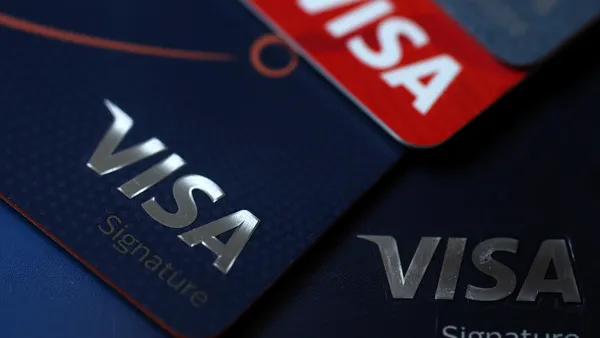Rep. Stephen Lynch, the chair of the House Task Force on Financial Technology, has proposed legislation that would provide additional consumer protections against being ripped off by fraudsters online.
Called the Protecting Consumers From Payments Scams Act, the bill — which is in discussion draft phase — would amend the Electronic Fund Transfer Act “to treat fraudulently induced electronic fund transfers in the same manner as (an) unauthorized electronic fund transfer,” according to a copy of the bill posted on the House website. The bill would protect consumers when they are tricked into making a fraudulent money transfer via payment apps, the site said.
Lynch, a Massachusetts Democrat, unveiled the bill at an April 28 task force hearing on security problems consumers may face with online digital wallets. A spokesman for Lynch didn’t respond to a request for comment.
“It's fair to ask whether consumers are unknowingly trading the short-term ease and convenience of digital payments, or the long term loss of personal financial data and latent vulnerability that could undermine their financial security,” Lynch said during the task force hearing. "So we're faced with the question of who should be on the hook when a consumer has been tricked into transferring their hard-earned savings by fraudulent online activity while transacting through digital wallets on an online banking platform.”
Nearly 18 million people were defrauded through scams involving digital wallets and person-to-person payments apps in 2020 when their popularity took off at the start of the coronavirus pandemic, according to a recently released congressional report, citing data from Javelin Strategy and Research.
The Consumer Financial Protection Bureau has received 9,277 complaints about mobile or digital wallets since it started accepting complaints in 2017. Some consumers have complained about losing the balances they had in their wallets when they face problems with digital wallet companies, the report said.
“Consumers may also not understand that funds kept in digital wallets or by payment apps may not be insured and protected to the same degree as their bank accounts,” the report says. “As funds stored in a wallet may not be considered deposits, they are generally ineligible for deposit insurance.”
Though some wallet providers deposit funds into an FDIC-insured bank account, that coverage is hard to come by. “Stakeholders have questioned whether users recognize their wallet balances may be uninsured, raising systemic risk concerns,” according to a congressional committee report.
Proponents of digital wallets have touted them as a solution for the estimated 7 million Americans that lack accounts to hold their money in either a bank or a credit union.
Lynch, who has represented the Bay State since 2001, pointed out that digital wallets have limited usefulness in addressing long-standing problems related to the unbanked.
“We should not ignore the fact that most financial products including digital wallets require a customer to have a bank account,” Lynch said.
The Massachusetts Democrat and his allies on March 28 introduced the Electronic Currency and Secure Hardware Act, H.R. 7231, called the ECash Act for short, which would direct the secretary of the U.S. Department of the Treasury to develop and issue a digital analog to the U.S. dollar.
“As we shift towards digital commerce and away from physical cash, we leave behind a segment of consumers that rely on physical cash because they do not have access to digital products,” Lynch said. "These gaps continue to highlight the need for a public sector digital payment offering that allows for instant peer-to-peer payments that also protect consumer privacy.”













